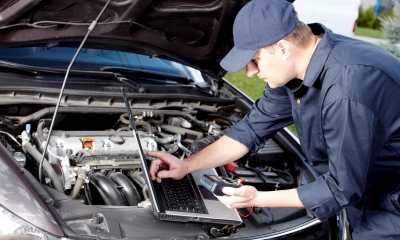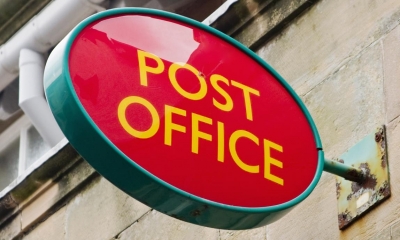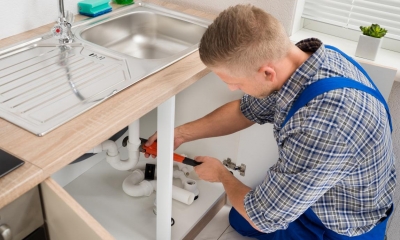
The petrol retailing sector is subject to a significant amount of regulation and it's advisable to obtain specialist help to make sure you comply with all the legal requirements. The following is an outline of some of the areas that are likely to be relevant to you. This list is not exhaustive.
What licences does a garage need?
To operate as a petrol filling station providing a typical range of products and services you will have to:
- obtain a petroleum storage certificate (special conditions will be imposed for storing LPG) from your local petrol enforcement authority
- obtain an environmental permit (or a pollution prevention and control permit in Scotland and Northern Ireland) if your annual fuel throughput is over 500,000 litres
- register with the local authority environmental health department if you plan to sell food
- register as a tobacco retailer (Scotland and Northern Ireland)
- get an Economic Operator Identifier Code and a Facility Identifier Code so you can store and sell tobacco products
- obtain authorisation from the Driver and Vehicle Standards Agency (DVSA) if you are going to offer MOT testing. You can find out more on the Gov.uk website
- obtain a Music Licence from PPL PRS Ltd if you are going to play background music in the forecourt shop
- register with the Information Commissioner's Office (ICO) if you plan to install a CCTV system
Alcohol licensing
If you decide to sell alcohol in your forecourt shop then you'll need to be licensed.
In England and Wales, the Licensing Act regulates the sale of alcohol and the supply of hot food between the hours of 11pm and 5am. A premises licence is required for any premises where these activities will take place, and a personal licence is required by anyone who wants to sell alcohol from premises which have a premises licence. The Gov.uk website contains more information about alcohol licensing.
In Northern Ireland, alcohol licences are granted by the county court. There is a set number of off-licences in Northern Ireland and new licences for alcohol off-sales are not currently granted. So you'll usually need to find someone who's giving up or selling their licence. You can read more about alcohol licensing in Northern Ireland on the NI Direct website.
In Scotland you will need a premises licence and a personal licence to be able to sell alcohol. Licences are granted by your local Licensing Board. You can read more about alcohol licensing in Scotland on the Scottish Government website.
Petrol seller certification
Any premises where petrol or liquefied petroleum gas (LPG) is stored or sold must obtain a certificate from the local petrol enforcement authority. The certificate will only be granted if the site and equipment comply with conditions imposed by the authority. Weights and measures legislation covers the pumps, the volume of fuel they deliver and the price display mechanism. Pumps are tested every year by trading standards officers. Petrol filling station operators must keep daily petrol records and must also carry out fire and explosion risk assessments. Details of relevant legislation can be obtained from your local petrol enforcement authority, trading standards department, the Petrol Retailers Association (part of the Retail Motor Industry Federation) and the Energy Institute.
Pollution prevention and control
Depending on your throughput of fuel, you may need to obtain authorisation under the Environmental Permitting regime and install vapour recovery equipment. Currently, smaller petrol filling stations with an annual throughput of less than 500,000 litres are exempt from the requirement to fit vapour recovery systems. Contact your local authority for more information.
Selling alcohol
The sale of alcohol is regulated by:
- the Licensing Act in England and Wales
- the Licensing (Northern Ireland) Order
- the Licensing (Scotland) Act in Scotland
If you intend to sell alcohol you'll need to obtain the appropriate licences and comply with the terms of the legislation. You can find out more information about alcohol licensing throughout the UK from:
- the Home Office
- NI Direct
- the Scottish Government
You must only buy alcohol from wholesalers that have been approved by HMRC under the Alcohol Wholesaler Registration Scheme.
Selling tobacco products
From May 2019 retailers can only store and sell tobacco products if they have an Economic Operator Identifier Code registered to their business and a Facility Identifier Code for each premises at which they are storing tobacco.
Carrier bag charge
A minimum 10p charge applies for single-use carrier bags in England (other rules apply in Wales, Scotland and Northern Ireland). You can get detailed guidance from the GOV.UK website.
Street litter control notices
Local authorities can issue these notices to make certain businesses - including service stations - clear up any litter around their site (up to 100 metres) that has originated from their retail activities. For example, this would include take-away food or drink packaging, waste lottery tickets or scratch cards, empty crisp or confectionery packets, ice cream and sandwich wrappers and so on.
Retailing
There is a wide range of legislation that applies to retail businesses in general and that protects the interests of the consumer. For example, goods and services must not be misleadingly described and the retail price of goods must be clearly displayed. You will be responsible for making sure that all goods or services are fit for their intended purpose and of satisfactory quality.
Waste batteries
If your business sells more than 32 kg of portable batteries in a year you must take back used batteries from customers to be recycled. You must provide this service free of charge. DEFRA has produced a calculator tool to help businesses work out whether they sell enough batteries each year to be affected by the new regulations. You can use the tool on the Waste Support website.
Food safety
All businesses in the food sector must comply with strict food safety legislation. If you sell food, you must register your business with the local authority environmental health department. Your local environmental health officer will be able to give you advice and guidance as to what you should install in your premises to make sure your operating areas are hygienic and how to comply with the requirements of the Food Safety Act.
Food hygiene rating scheme
Food businesses in Wales and Northern Ireland must display their food hygiene rating. The lowest rating is 0, meaning urgent improvement is needed, and the highest is 5, indicating very good hygiene levels. There are similar schemes in the rest of the UK but these are voluntary.
DVD and games rental/sales
If you rent out or sell DVDs and games your staff must be aware that it is a criminal offence to supply anyone below the specified age with an age-restricted title. You can find out more about age-restricted products on the Business Companion website.
Health & safety, fire
You must also make sure that you comply with workplace health and safety and fire safety legislation.
Employment legislation
Anyone employing staff must comply with employment legislation. Important areas of legislation include recruitment, employment contracts, pay, working hours, holidays, employment policies, sickness, maternity, paternity, discrimination, discipline, grievances, dismissals, redundancies and employment tribunals.
Insurance for a garage
Contact an insurer or insurance broker and explain exactly how your business will operate - they will then explain what insurance cover you must have by law, and other cover you should consider. This might include:
- premises, equipment and stock
- goods in transit (for example on the way back from a cash and carry)
- freezer breakdown
- cash
- business interruption
- employers liability
- public and products liability
- motor insurance
Members of the Petrol Retailers Association benefit from specially tailored insurance packages, including environmental cover.


